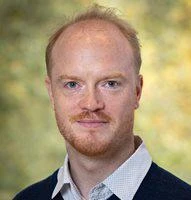
Connect
About
Dr Luke McDonagh joined LSE Law School in 2020. He undertakes research in the areas of Intellectual Property Law and Constitutional Law. Prior to taking up his position at LSE he was a Senior Lecturer at City, University of London (2015-2020), a Lecturer at Cardiff University (2013-2015) and LSE Fellow (2011-13). Luke holds a PhD from Queen Mary, University of London (2011), an LL.M from the London School of Economics (LSE) (2006-7) and a B.C.L. degree from NUI, Galway (2002-05). He is a Fellow of the Higher Education Academy (FHEA).
Luke has published widely in respected journals including The Modern Law Review, the Cambridge Law Journal, the Journal of Law and Society, Intellectual Property Quarterly, Civil Justice Quarterly and the International Journal of Cultural Property. Luke is the author of the monograph European Patent Litigation in the Shadow of the Unified Patent Court (Edward Elgar, 2016) and the co-author (along with Prof. Stavroula Karapapa of the University of Reading) of the text book Intellectual Property Law (OUP, 2019). His most recent monograph is Performing Copyright: Law, Theatre and Authorship (Hart, 2021). In 2023-24 he was awarded the prestigious Lalive and Merryman Fellowship Award for the best article published in the International Journal of Cultural Property in 2022.
Luke’s work on patent litigation was cited in 2014 in the UK Parliament (House of Commons) and in a US Federal Trade Commission report on Patent assertion entities in 2016. In January 2019 he was invited to present his research on patent law before the JURI Committee of the European Parliament. In 2021 Luke’s research was cited in an Irish Senate (Seanad Éireann) debate on the WTO TRIPS Waiver proposal put forward by India and South Africa during the Covid-19 Pandemic.
Luke has been awarded grant funding for a range of successful law projects, including substantial grants from the ESRC, EU Horizon2020, the UK Global Challenges Research Fund, the UK Intellectual Property Office, The Modern Law Review, CREATe and the UK Constitutional Law Association.
Luke has held a range of visiting scholar positions at institutions around the world, including at Waseda University, Tokyo, Japan (2014-15); Keio University, Tokyo, Japan (2017-18); Toyo University, Tokyo, Japan (2018-19); Tongji University, Shanghai, China (2019-20); and Scuola Superiore Sant'Anna, Pisa, Italy (2019-20).
Luke has published journalistic articles and blogs with the Guardian, Independent, Salon, the FT Adviser, the Kluwer Patent Blog, the LSE Review of Books and The Conversation.
Research
Research Interests
Luke’s IP law research primarily involves using empirical and theoretical insights to shed light on interesting (and sometimes controversial) aspects of intellectual property, such as the interplay between property owners and users in free-sharing creative environments (including those of theatre, open-source software and traditional music). His PhD research (2007-2011) involved empirical analysis of the relationship between Irish traditional music and copyright using interviews and survey data gathered from traditional musicians. His work on theatre and copyright includes a 2014 article in the Modern Law Review investigating copyright in the world of theatre, whereby he interviewed playwrights, directors and actors about the relationship between their theatrical practices and the norms of copyright. His work on law and trade marks resulted in a 2015 article on trade marks, brands and anthropological marketing in the Journal of Law and Society. More recently he has been investigating how intellectual property law interacts with artificial intelligence and interactive robotics as part of the Horizon2020 project Inclusive Robotics for a Better Society (INBOTS - http://inbots.eu/).